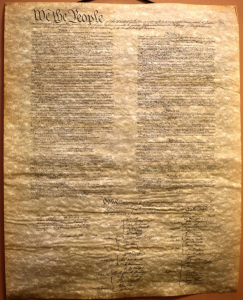A Guide To The Eighth Amendment
A Guide To The Eighth Amendment

The Eighth Amendment was introduced as part of the Bill of Rights into the Constitution on September 5, 1789. It was voted for by 9 out of 12 states on December 15, 1791.
The Eighth Amendment to the United States Constitution states: “Excessive bail shall not be required, nor excessive fines imposed, nor cruel and unusual punishments inflicted.”
The courts are not allowed to assign an accused person a large or excessive amount of money for bail. This is to protect the defendant from being judged early on and having their bail amount based on the judgment.
This part of the Constitution was borrowed from the English Bill of Rights of 1689. Before their Bill of Rights, the Kind’s judges often subverted the provisions of the law. An individual was able to be helped without bail upon the SOvereign’s command. The Petition of Right of 1628 argues that the Kin did not have this authority. Following the Habeas Corpus Act of 1679 judges were compelled to set bail. Still, judges often required impractical amounts, making it impossible for defendants to secure their release.
The English Bill of Rights determined that “excessive bail ought not to be required”, eventually making its way into the Eighth Amendment to the United States Constitution.
If you have questions about bail, or the bail process, Mud Bug Bail Bonds can help.
We are here 24 hours a day 7 days a week to help you when you need us. If you need a bail bond in Lafayette, Louisiana please give us a call at (337)466-3533.
